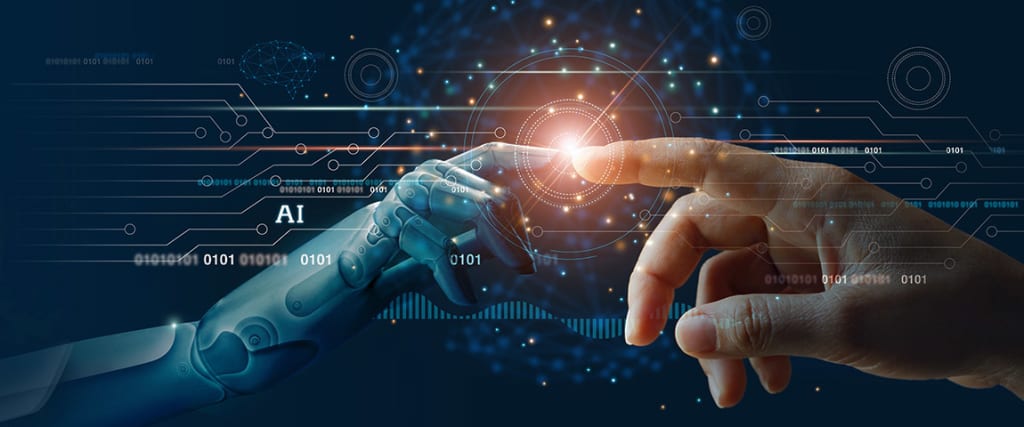Artificial Intelligence and Machine Learning
The world we live in....

Artificial Intelligence (AI) and Machine Learning (ML) are two captivating and rapidly evolving fields within the realm of computer science. Over the recent years, they have garnered substantial attention and made remarkable progress, revolutionizing the way we interact with technology and transforming various industries. These cutting-edge technologies are based on the concept of simulating human intelligence in machines and enabling them to perform tasks that traditionally required human cognition.
At the core of AI lies the ability to understand, reason, and learn from data, mimicking human thought processes to make informed decisions. Machine Learning, a subset of AI, focuses specifically on developing algorithms that can learn and improve their performance over time without being explicitly programmed for each task.
The fundamental idea behind Machine Learning is to create models that can recognize patterns and relationships in data, allowing them to make predictions and decisions autonomously. Instead of following rigid instructions, Machine Learning algorithms learn from vast datasets, extracting relevant features and insights to generalize and apply that knowledge to new, unseen data.
There are various types of Machine Learning, each with its unique approach and applications:
1. Supervised Learning: In this approach, the algorithm is provided with labeled data, meaning the input and corresponding output are known. The objective is for the model to learn the mapping between inputs and outputs, enabling it to make accurate predictions on new, unseen data.
2. Unsupervised Learning: Unlike supervised learning, unsupervised learning algorithms are given unlabelled data and are tasked with identifying patterns and relationships independently. Clustering and dimensionality reduction are common tasks within this category.
3. Reinforcement Learning: Inspired by behavioral psychology, reinforcement learning involves an agent interacting with an environment and receiving feedback in the form of rewards or penalties. The agent learns to make decisions and take actions that maximize rewards over time.
The applications of Machine Learning are vast and far-reaching, contributing to significant advancements in various industries:
1. Natural Language Processing (NLP): AI-powered NLP systems can now understand, interpret, and generate human language, leading to the development of voice assistants, language translation services, and sentiment analysis tools.
2. Image and Video Recognition: ML algorithms have made great strides in analyzing images and videos, allowing machines to identify objects, faces, gestures, and even emotions. This technology is applied in self-driving cars, surveillance systems, and medical image analysis.
3. Healthcare: Machine Learning models are proving to be invaluable in diagnosing diseases, predicting patient outcomes, and personalizing treatment plans based on individual patient data.
4. Finance: AI algorithms are being employed for fraud detection, credit risk assessment, and algorithmic trading, streamlining processes and improving decision-making.
While AI and ML hold immense promise for the future, they also raise important ethical and societal challenges. Concerns regarding potential biases in algorithms, job displacement due to automation, data privacy, and security issues have come to the forefront of discussions.
As researchers and engineers continue to push the boundaries of what machines can achieve, it is crucial to strike a balance between innovation, regulation, and responsible deployment of these technologies. Ensuring transparency and accountability in AI systems is essential to build trust among users and mitigate potential risks.
In conclusion, Artificial Intelligence and Machine Learning have rapidly transformed our world and will continue to shape our future. Their ability to learn from data and make intelligent decisions has opened up exciting possibilities in various domains. However, it is crucial to approach these advancements with careful consideration of the ethical and societal implications, to ensure that AI and ML technologies are harnessed for the greater good of humanity. As we navigate this exciting frontier, fostering collaboration between technology experts, policymakers, and society at large will be key to maximizing the benefits while minimizing the challenges posed by AI and ML.





Comments
There are no comments for this story
Be the first to respond and start the conversation.